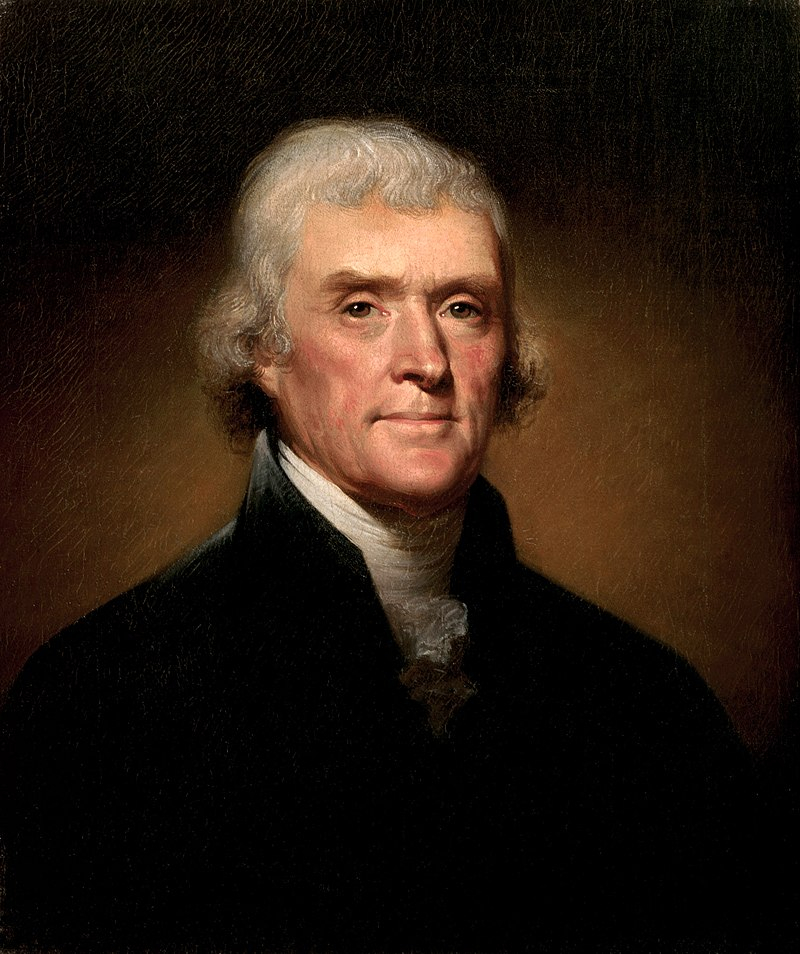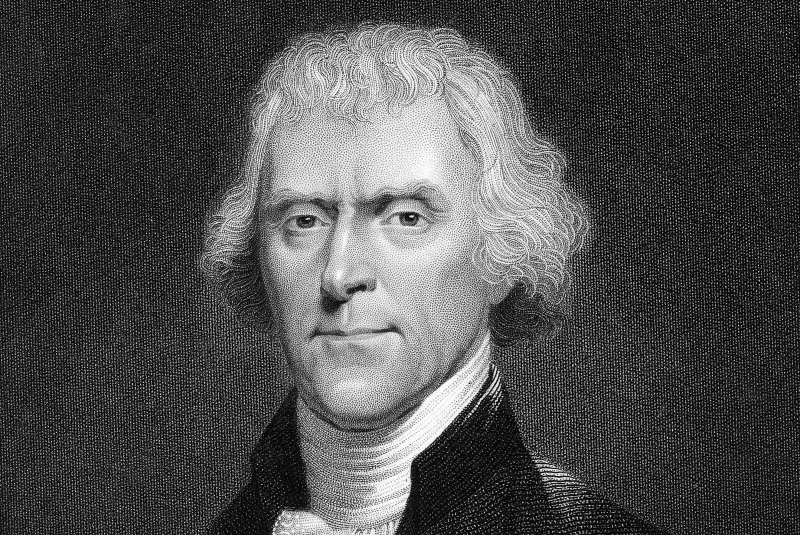Thomas Jefferson

Thomas Jefferson (April 13, 1743 – July 4, 1826) was a key Founding Father of the United States, the author of the Declaration of Independence (1776), and the third President of the United States (1801-1809). Jefferson was a staunch Republican who advocated for liberty, democracy, and distributed power. In 1777, Jefferson also drafted the Statute for Religious Freedom, which was enacted by the state of Virginia in 1786. Jefferson was also a well-known polymath, with interests ranging from architecture to gardening, philosophy, literature, and education. Despite being a slave owner himself, Jefferson attempted to introduce legislation (1800) to abolish slavery in the Western areas. As President, he signed legislation prohibiting the entry of slaves into the United States (1807).
Jefferson was born in Shadwell, Goochland County, Virginia, to a wealthy family. Peter Jefferson, his father, was a land and slave owner in Virginia. When Jefferson's father died in 1745, he received 5,000 acres, which included Monticello. jefferson Thomas Jefferson was an avid learner as a child, often spending up to 15 hours a day studying. He was to have a lifetime love of reading. He possessed a sharp brain as well as a diverse set of interests. His interests included philosophy, architecture, and the natural sciences. He enrolled at the College of William & Mary in Williamsburg at the age of 16, and two years later graduated with honors. He became a lawyer after graduating from college and later served in the Virginia House of Burgesses. A Summary View of the Rights of British America was one of his early significant political essays (1774). This provided a thoughtful discussion of how America could reach an agreement with Britain. It was crucial in molding public opinion in the run-up to the American Revolution.
The American Declaration of Independence was drafted mostly by Thomas Jefferson. The act passed on July 4th, 1776, was a symbolic proclamation of the American Revolution's goals. Jefferson was dissatisfied that a reference to the evils of slavery had been deleted at the request of Southern delegates. Jefferson succeeded Benjamin Franklin as Minister to France from 1785 to 1789. Jefferson became involved in Paris society while in France. He was a well-known presenter who met many of the great minds of the day. Jefferson witnessed the social and political upheaval that led to the French Revolution. The French Assembly issued the Declaration of the Rights of Man and of the Citizen on August 26, 1789, which was heavily influenced by Jefferson's US Declaration of Independence. When Jefferson returned to America, he became George Washington's first Secretary of State. He began disputing the level of government spending with the Hamilton groups here. Jefferson was a supporter of limited government. He retired temporarily to Monticello at the end of his tenure in 1783, where he spent time in his gardens and with his family.
Jefferson ran for President in 1796, but was barely defeated by John Adams; yet, under the wording of the constitution, this was enough for him to become Vice President. Jefferson fought a tough campaign in the run-up to the next election in 1800. The Alien and Sedition Act of 1798, for instance, resulted in the imprisonment of numerous newspaper editors who supported Jefferson and were critical of the current government. However, because Jefferson was barely elected, he was able to encourage open and representative government. When he was elected, he extended a friendly hand to his erstwhile political adversaries. He also let the Sedition Act expire and advocated the presence of free speech in practice. Jefferson's presidency was dramatic, but more importantly, he presided over a period of relative stability and kept America out of battle.
The British-French conflicts that raged around Canada at the period threatened American neutrality. Through the Louisiana Purchase, which provided America with additional states to the west, Jefferson was able to double the size of the US in 1803. He also commissioned the Lewis and Clark Expedition, which traveled across America in search of exploration and goodwill with Native American populations.
Jefferson was able to retire from politics in 1808. In retirement, he spent much of his time at his beloved Monticello, as well as working on the University of Virginia's foundation. Jefferson possessed a wide range of abilities and interests. He was fascinated by both science and the arts. He was also interested in architecture and played a role in transferring the neo-palladian style from Britain to America. This architectural style was connected with republicanism and civic morality at the time.


























